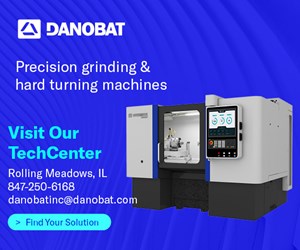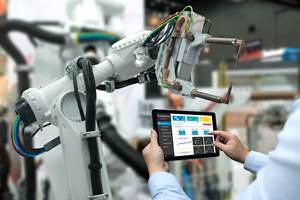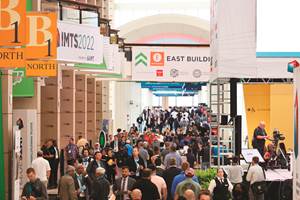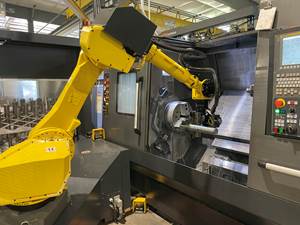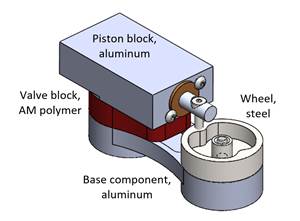Software Helps Niche Manufacturing Job Shop Tackle Complex 3D Machining Jobs
This nine-person firm founded in the early 1950s, has found a niche machining molds and other complex 3D parts for a long list of blue chip clients.
Mars Manufacturing (Hayward, California), a nine-person firm founded in the early 1950s, has found a niche machining molds and other complex 3D parts for a long list of blue chip clients.
All of the firm’s jobs are programmed with SurfCAM software from Surfware, Inc. (Westlake Village, California) and cut on Fadal and Toyoda machining centers. With just two seats of SurfCAM, the firm has taken on projects for clients including H.J. Heinz, Campbell’s Soups, Hewlett-Packard, John Deere and Compaq Computer. “We specialize in 3D, and we’re always in search of the most complicated, most complex machining jobs,” explains Gene DeGennaro, Mars Manufacturing’s president. “The more complicated the job is, the more interesting it is for us to work on.
“We’re looking for the 3D parts with lots of undercuts,” he continues. “If you envision an end mill as being a cylindrical object, you can’t cut underneath a surface, such as doing a keyhole or an undercut. Another way of looking at it is removing a small segment from a circle. How do you machine under the legs? That’s the type of work that we specialize in doing. Rather than using ball end mills, we use spherical end mills.”
The list of parts manufactured by Mars Manufacturing is diverse and cuts across multiple industries. The common thread is the specific knowledge that the company has had to acquire in various niche markets and the complexity of the molds and parts being machined. One niche market that the company has been involved in is the milling of replacement parts for automated can-making equipment. “Up until a few years ago, every tuna can made in the United States was made with parts we manufactured,” says Mr. DeGennaro.
Another niche product with which Mars Manufacturing has been involved is the manufacturing of pellicle frames for the semiconductor industry. “Pellicles are basically a filter designed to keep dust and particulate off of photo masks, so that they don’t get reproduced into the silicon wafers,” explains Mr. DeGennaro. “The pellicle frame is just 1 or 2 millimeters thick and 1 to 10 millimeters high. It’s made of aircraft alloy aluminum and manufactured to tolerances of 2 or 3 thousandths of an inch. They are mounted on a photo mask, and there is an optically clear film that goes on the other side of it. So needless to say, they are quite difficult to machine.”
A third major product line for the company is thermoform molds, where sheets of plastic are heated and stretched across the mold to produce the finished product. “Think about the package of batteries that you buy at the grocery store,” explains Mr. DeGennaro. “There are often three batteries in there, and they are stacked up in triangular fashion so that they hold themselves in position. Now imagine that package being laid out flat. Those are the types of packaging molds that we do.
“With thermoform molds, you have to drill vacuum holes in them—holes with a number 74 or 76 drill, as small as 20 thousandths of an inch,” reports Mr. DeGennaro. “Using SURFCAM, we lay out our vacuum holes on different layers and then select them linearly to generate a drilling cycle. In one particular instance, the mold had more than 6,000 holes in it and we did it all with one drill with no breakage whatsoever.
“Regardless of which product line we happen to be working on, we take advantage of just about everything that SurfCAM can do, from auto roughing and planar machining to Z finishing and multi-surface machining,” says Mr. DeGennaro. “Traditionally, we tell customers that on a normal delivery, we can turn a complete package—which includes design, sample parts, and production tooling—in 3 weeks.
“SurfCAM generates NC code so easily for us that it has really given us a competitive edge. We’re confident enough to send NC programs to the machine tools and let them run unattended.”
“The designs we receive from customers are created in Pro/Engineer or SolidWorks or another solid modeling package,” relates Mr. DeGennaro. “When we take the solid model and bring it into SurfCAM, it’s totally seamless—all of the surfaces are correct. This is extremely important to us, because if you’re doing auto generation or auto machining and there’s a seam in a surface, the machine tool is going to want to push the cutter right through that crack, which results in a scrap mold that can cost you thousands of dollars.
A “power user” of SurfCAM, Mars Manufacturing has honed its ability to machine the most complex 3D molds and parts, and the company now has the luxury of picking and choosing the types of work that it wants to do next.
Related Content
How to Grow the Business with Real-Time Job Status Data
ERP systems that focus on making data more accessible can improve communication within a shop, reducing wasteful errors and improving capacity.
Read MoreIMTS Takeaways From the Modern Machine Shop Editorial Team
The first in-person IMTS in four years left the MMS editorial staff with a lot to digest. Here are a few of our takeaways from the show floor.
Read MoreSame Headcount, Double the Sales: Successful Job Shop Automation
Doubling sales requires more than just robots. Pro Products’ staff works in tandem with robots, performing inspection and other value-added activities.
Read MoreSolve Worker Shortages With ACE Workforce Development
The America’s Cutting Edge (ACE) program is addressing the current shortage in trained and available workers by offering no-cost online and in-person training opportunities in CNC machining and metrology.
Read MoreRead Next
3 Mistakes That Cause CNC Programs to Fail
Despite enhancements to manufacturing technology, there are still issues today that can cause programs to fail. These failures can cause lost time, scrapped parts, damaged machines and even injured operators.
Read MoreThe Cut Scene: The Finer Details of Large-Format Machining
Small details and features can have an outsized impact on large parts, such as Barbco’s collapsible utility drill head.
Read More





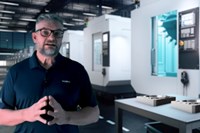



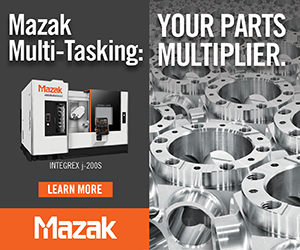


.png;maxWidth=300;quality=90)




